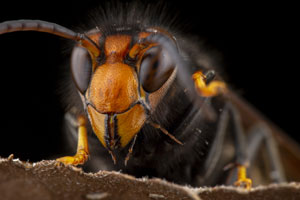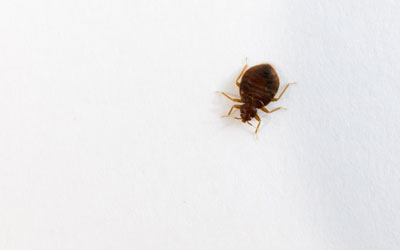
What Attracts Termites to Your Property?
Everyone knows termites are attracted to wood, but each one has specific preferences that influence what structures they infest. The following list contains the main things that often attract termites to your property:
- Improper drainage or clogged gutters causing excess moisture and drainage problems
- Firewood or wood piles stored in or near your property
- Wooden foundations in direct contact with soil
- Airflow or ventilation issues causing excess humidity inside of a home
- Mulch or landscaping too close to the foundation of the property
How to Prevent Termites
In addition to limiting the presence of the above attractants, there are several other things you can do to prevent termites in your yard:
- Be proactive about checking your home for pest problems
- Fix broken roofs and seal gaps and crevices in the home
- Keep a neat garden with trees and shrubs trimmed back
- Regularly inspect porches, decks, and outdoor furniture
The best thing you can do to prevent termite problems is to invest in regular visits from a pest control company that can provide inspections and preventative services.
Long-term Termite Protection
Termites are a frightening pest. Once you have them, you certainly need the help of a termite exterminator to get rid of them. The team at Western Exterminator, formerly Pratt Pest knows how to keep termites away from your property all year long. Contact us today to learn more about how we can keep you termite-free.
 Living in the Marysville and Snohomish WA area, there’s a large chance you’ve heard all about the Asian giant hornet, infamously dubbed as the “murder hornet”. With two sightings of these dangerous hornets in the northernmost part of our state, it’s understandable why you may be worrying about these insects. As the biggest hornet in the world, the Asian giant hornet can administer a potentially lethal sting. Besides that, they are also extremely threatening to the honeybee population. The team at Western Exterminator, formerly Pratt Pest is here to share all you need to know about the murder hornet.
Living in the Marysville and Snohomish WA area, there’s a large chance you’ve heard all about the Asian giant hornet, infamously dubbed as the “murder hornet”. With two sightings of these dangerous hornets in the northernmost part of our state, it’s understandable why you may be worrying about these insects. As the biggest hornet in the world, the Asian giant hornet can administer a potentially lethal sting. Besides that, they are also extremely threatening to the honeybee population. The team at Western Exterminator, formerly Pratt Pest is here to share all you need to know about the murder hornet. Bed bugs are one of the most dreaded pest problems in the nation, and it’s easy to understand why. Not only do these bloodsucking pests bite you in the night, they also can spread throughout your home. Bed Bug Awareness Week is here, making now the perfect time to learn what’s fact and what’s fiction when it comes to
Bed bugs are one of the most dreaded pest problems in the nation, and it’s easy to understand why. Not only do these bloodsucking pests bite you in the night, they also can spread throughout your home. Bed Bug Awareness Week is here, making now the perfect time to learn what’s fact and what’s fiction when it comes to